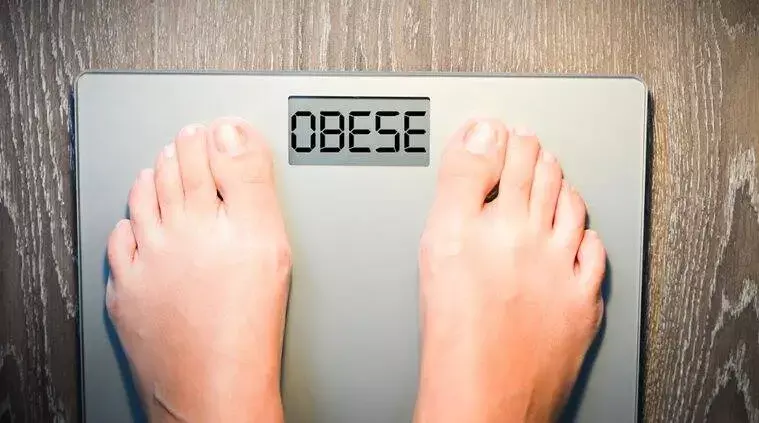- Home
- Medical news & Guidelines
- Anesthesiology
- Cardiology and CTVS
- Critical Care
- Dentistry
- Dermatology
- Diabetes and Endocrinology
- ENT
- Gastroenterology
- Medicine
- Nephrology
- Neurology
- Obstretics-Gynaecology
- Oncology
- Ophthalmology
- Orthopaedics
- Pediatrics-Neonatology
- Psychiatry
- Pulmonology
- Radiology
- Surgery
- Urology
- Laboratory Medicine
- Diet
- Nursing
- Paramedical
- Physiotherapy
- Health news
- Fact Check
- Bone Health Fact Check
- Brain Health Fact Check
- Cancer Related Fact Check
- Child Care Fact Check
- Dental and oral health fact check
- Diabetes and metabolic health fact check
- Diet and Nutrition Fact Check
- Eye and ENT Care Fact Check
- Fitness fact check
- Gut health fact check
- Heart health fact check
- Kidney health fact check
- Medical education fact check
- Men's health fact check
- Respiratory fact check
- Skin and hair care fact check
- Vaccine and Immunization fact check
- Women's health fact check
- AYUSH
- State News
- Andaman and Nicobar Islands
- Andhra Pradesh
- Arunachal Pradesh
- Assam
- Bihar
- Chandigarh
- Chattisgarh
- Dadra and Nagar Haveli
- Daman and Diu
- Delhi
- Goa
- Gujarat
- Haryana
- Himachal Pradesh
- Jammu & Kashmir
- Jharkhand
- Karnataka
- Kerala
- Ladakh
- Lakshadweep
- Madhya Pradesh
- Maharashtra
- Manipur
- Meghalaya
- Mizoram
- Nagaland
- Odisha
- Puducherry
- Punjab
- Rajasthan
- Sikkim
- Tamil Nadu
- Telangana
- Tripura
- Uttar Pradesh
- Uttrakhand
- West Bengal
- Medical Education
- Industry
Chitosan supplementation beneficial adjunctive treatment for obesity among teenagers

Tehran, Iran: Chitosan supplementation in obese or overweight adolescents can improve appetite-related hormones (leptin, adiponectin, and NPY) and cardiometabolic parameters (glycemic markers and anthropometric indicators of lipid and obesity), a recent study has stated.
The researchers in their study, published in BMC Pediatrics, add that these effects should not be taken as a magic bullet for diabetes management; rather, they should be taken as an adjuvant. "Such a strategy should be planned mainly in combination with a physical exercise and hypocaloric diet supervised by proper healthy professionals," they wrote.
Obesity in childhood often extends into childhood; about 80% of children with obesity are affected by obesity in childhood. Owing to the problem of non-adherence to nutrition-based therapies in children, an increment of functional foodstuffs or supplements may be conceivable in this setting instead of the concept of food restriction. Proper intake of fibers is recognizably linked with reduced obesity risk and seems to be viable for diabetes management in the pediatric population.
Chitosan is one such dietary fiber in the limelight for improving obesity-related markers, but little is known about its effects on adolescents. To fill this knowledge gap, Farzad Shidfar, Department of Nutrition, School of Public Health, Iran University of Medical Sciences, Tehran, Iran, and colleagues aimed to determine the effects of chitosan supplementation on obesity-related cardiometabolic markers and appetite-related hormones in overweight or obese adolescents.
To achieve their objective, the researchers performed a randomized clinical trial on 64 obese or overweight adolescents. They were randomly allocated for 12 weeks to receive chitosan supplementation (n = 32) or placebo as control (n = 32). The researchers examined lipid and glycemic profiles, anthropometric measures, and appetite-related hormones.
Salient findings of the study:
· Sixty-one adolescents completed the study (chitosan = 31, placebo = 30).
· Chitosan supplementation significantly improved anthropometric indicators of obesity (waist circumference: − 5.00 ± 3.11 cm, body weight: − 3.58 ± 2.17 kg, and body mass index: − 1.61 ± 0.99 kg/m2), lipid (total cholesterol: − 14.12 ± 13.34, triglycerides: − 5.67 ± 9.24, LDL-C: − 7.18 ± 10.16, and HDL-C: 1.83 ± 4.64 mg/dL) and glycemic markers (insulin: − 5.51 ± 7.52 μIU/mL, fasting blood glucose: − 5.77 ± 6.93 mg/dL, and homeostasis model assessment of insulin resistance: − 0.24 ± 0.44), and appetite-related hormones (adiponectin: 1.69 ± 2.13 ng/dL, leptin − 19.40 ± 16.89, and neuropeptide Y: − 41.96 ± 79.34 ng/dL).
· Chitosan supplementation, when compared with the placebo group, Chitosan supplementation had a more significant improvement in body mass index (kg/m2 and Z-score), body weight, waist circumference, and levels of adiponectin, insulin, and leptin.
· Differences were significant according to P-value < 0.05.
To conclude, chitosan supplementation can improve appetite-related hormones (leptin, adiponectin, and NPY) and cardiometabolic parameters (anthropometric indicators of lipid and obesity and glycemic markers) in adolescents with overweight or obesity.
Reference:
Fatahi, S., Sayyari, A.A., Salehi, M. et al. The effects of chitosan supplementation on anthropometric indicators of obesity, lipid, and glycemic profiles, and appetite-regulated hormones in adolescents with overweight or obesity: a randomized, double-blind clinical trial. BMC Pediatr 22, 527 (2022). https://doi.org/10.1186/s12887-022-03590-x
Dr Kamal Kant Kohli-MBBS, DTCD- a chest specialist with more than 30 years of practice and a flair for writing clinical articles, Dr Kamal Kant Kohli joined Medical Dialogues as a Chief Editor of Medical News. Besides writing articles, as an editor, he proofreads and verifies all the medical content published on Medical Dialogues including those coming from journals, studies,medical conferences,guidelines etc. Email: drkohli@medicaldialogues.in. Contact no. 011-43720751


